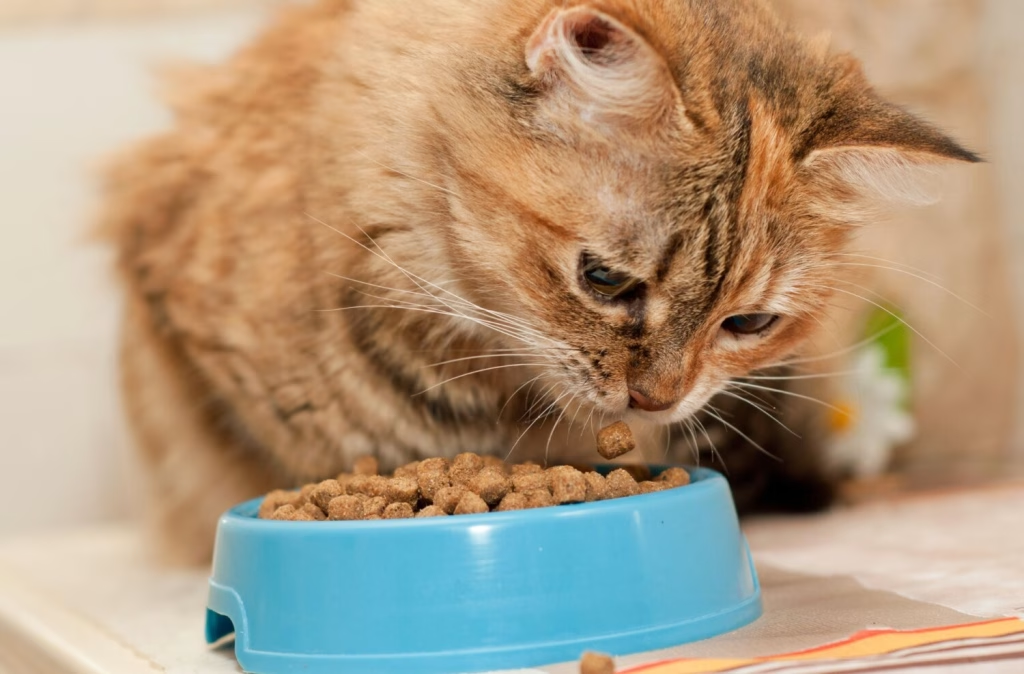Understanding Hypoallergenic Cat Food
Food allergies in cats are usually caused by specific proteins in their diet. Common allergens include:
- Chicken
- Beef
- Dairy
- Fish
- Grains (such as wheat or corn)
Cats with food allergies may develop symptoms such as excessive scratching, ear infections, digestive issues, or respiratory problems. If you suspect your cat has allergies, consult your vet to identify the trigger and choose the right food.
Best Cat Foods for Allergies
1. Hill’s Prescription Diet z/d
This hydrolyzed protein formula is specially designed for cats with severe food allergies. It contains highly digestible ingredients and is recommended by veterinarians.
Key Features:
✅ Hydrolyzed protein to reduce allergenicity
✅ Clinically tested for food sensitivities
✅ Supports skin and digestive health
2. Royal Canin Veterinary Diet Hydrolyzed Protein
This veterinary-exclusive diet is another excellent choice for cats with allergies. The hydrolyzed proteins help prevent immune system reactions while providing essential nutrients.
Key Features:
✅ Hydrolyzed soy protein for easy digestion
✅ Supports skin barrier function with omega-3 fatty acids
✅ Reduces inflammation and allergic reactions
3. Blue Buffalo Basics Limited Ingredient Diet Grain-Free
If your cat has grain allergies or sensitivities, this limited-ingredient diet may be a great option. It contains a single protein source (like turkey or duck) and avoids common allergens like chicken, beef, and dairy.
Key Features:
✅ No grains, dairy, or artificial additives
✅ Contains omega fatty acids for skin and coat health
✅ Includes pumpkin and peas for gentle digestion
4. Natural Balance L.I.D. Limited Ingredient Diets
This brand offers simple, grain-free recipes with novel protein sources like duck or venison, making it ideal for cats with multiple food sensitivities.
Key Features:
✅ Limited ingredients to minimize allergens
✅ Available in wet and dry formulas
✅ No artificial flavors, colors, or preservatives
5. Instinct Limited Ingredient Diet Grain-Free Recipe
This raw-inspired, freeze-dried food uses a single animal protein and contains no grains, dairy, or artificial ingredients, making it a great hypoallergenic option.
Key Features:
✅ Uses a single animal protein (like rabbit or lamb)
✅ No grains, dairy, or artificial ingredients
✅ Freeze-dried raw coating for extra nutrition
Tips for Switching Your Cat’s Diet
- Gradual Transition: Introduce the new food slowly over 7–10 days by mixing it with your cat’s current food.
- Monitor for Reactions: Keep an eye on your cat’s symptoms and consult a vet if needed.
- Stick to the Diet: Avoid feeding treats or table scraps that might trigger allergies.
- Choose High-Quality Ingredients: Look for brands that use natural, limited ingredients without fillers.
Finding the right food for a cat with allergies can be tricky, but with the right diet, you can significantly improve their quality of life. Whether you opt for hydrolyzed protein, limited-ingredient diets, or grain-free formulas, selecting the best hypoallergenic cat food will help keep your feline happy and healthy.
